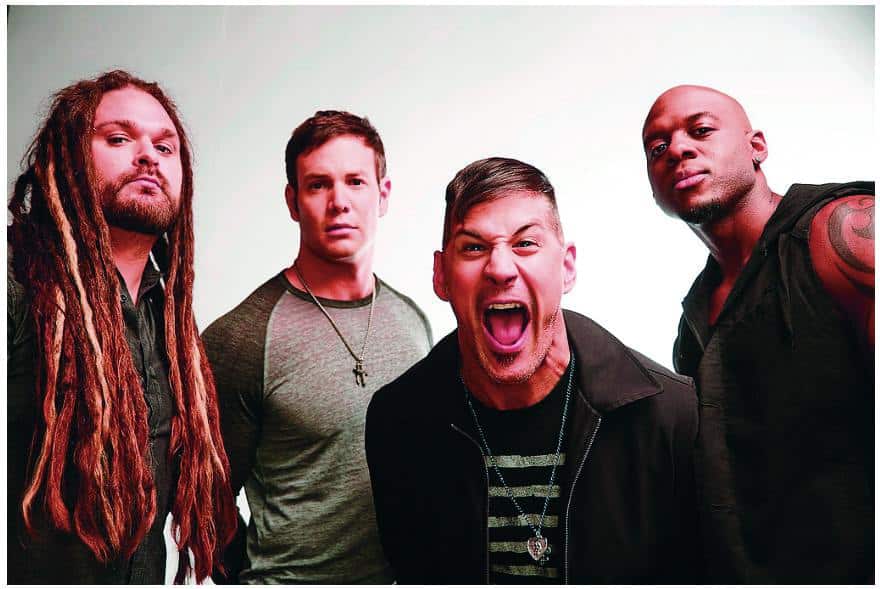
Canadian soldiers fight for basic human rights overseas
Sarah Ferguson
Contributor
What Captain Walter Martin remembers most about his tours in Afghanistan is the scorching heat.
“It was about 63 degrees Celsius during the day there; we drank half a litre of water every half hour to stay hydrated, and every third bottle of water was a Gatorade,” he said. “It was the only way to keep the electrolytes up, so we could get our jobs done … I remember one time when the Taliban took over the Helmand province – an area occupied by the British troops – and we had to move 150 km in one day in that heat.”
Martin is a reservist who has served in the Canadian Forces for the past 30 years. He did two tours of duty in Afghanistan, and was also involved in peacekeeping in Bosnia during the ’90s.
Martin first spent four months in Afghanistan in 2006. His tour of duty was supposed to last three months, but had a month extensions when lieutenant Bill Turner was killed in action. Martin’s role was to assist with the reconstruction of villages destroyed by the Taliban. He helped appraise food and water supplies, provided medicine to the people, and helped evaluate the economical state of the damaged villages.
One of the bigger challenges was acting as “a communication liaison between the civilians and the local military,” he explained.
“I had to work through an interpreter, which was very challenging at times, because I didn’t know the language. Some soldiers manage to become fluent in Farsi, Tajik, or Pashtun (regional Afghani languages), but many of us work through interpreters, and with all the discussion going on, you can wear an interpreter out very quickly.”
Martin’s second tour in Afghanistan was in 2009. He was away from his family for most of that year.
“We were in Kandahar building bridges and we repaired a dam … its controls were faulty, but it wasn’t due to battle damage,” he said.
“That tour put the completion of my communications degree on hold, and I was nearly done [laughs].”
Before his first tour to Kandahar, Martin said he had to spend a compulsory three-and-a-half months of cultural briefing to learn about the Afghani culture.
“One of the biggest differences between Canada and Afghanistan is how our cultures treat women; the women in Afghani culture are secluded from society,” he said. “The people of Afghanistan value education above all else.”
Martin said that under the influence of the Taliban, the citizens of Afghanistan were ordered to read the Quran daily but could not read any other forms of literature. He said women, as well as poorer citizens like farmers, were forbidden to read.
“The ironic thing is that the word ‘Taliban’ means “student” – but they mean a student of the Quran,” Martin said.
Martin said that because of the power of education in Afghani society, the Taliban liked to kill school teachers to prevent outside knowledge from invading the culture.
“I remember one time, when the Taliban invaded a village and to save himself, one teacher fled to another village across the river … the local people hid the teacher from [the Taliban] and if they were found out, all of them would have been killed,” he said.
“One of my proudest moments while I was serving [in Afghanistan] was when I met that teacher and presented him with school supplies, paper, pencils – that type of thing … he was grinning from ear to ear.”
Master Corporal Thomas Boxall retired from the forces in 2008 and is a University of Regina graduate. He served in Afghanistan in 2004, and also remembers the importance of education in Afghani society. One of Boxall’s roles while on tour was to help rebuild a girls school.
“Imagine, a sixteen-year-old girl who has never been allowed to read and can’t write her own name, and now she has a place to learn,” he said. “It was very rewarding to be part of that project.”
Boxall also said that with the provincial election coming up, he couldn’t help but think about witnessing Afghanistan’s first democratic election while he was on tour.
”Leading up to the elections, the Taliban had a strong presence across the country – they handed out pamphlets saying, ‘If you show up on election day, you will be shot,’” Boxall said.
“The day before the election there was a sandstorm that ended up lasting three days, so the election went off without a hitch, and nobody was killed or injured.
“It makes you think about what democracy is and how lucky we are in this country.”
Martin said he is proud of the efforts that Canadian troops have put forth over the past three decades. Change is slow, but things are mellowing in Afghanistan.
“What we are doing for the world is worth the cost.”

![[1]Afghan Vet](http://www.carillonregina.com/wp-content/uploads/2011/11/1Afghan-Vet.jpg)








